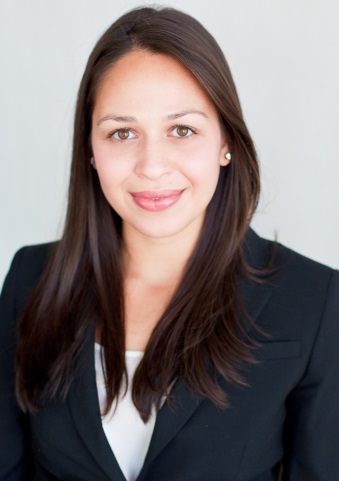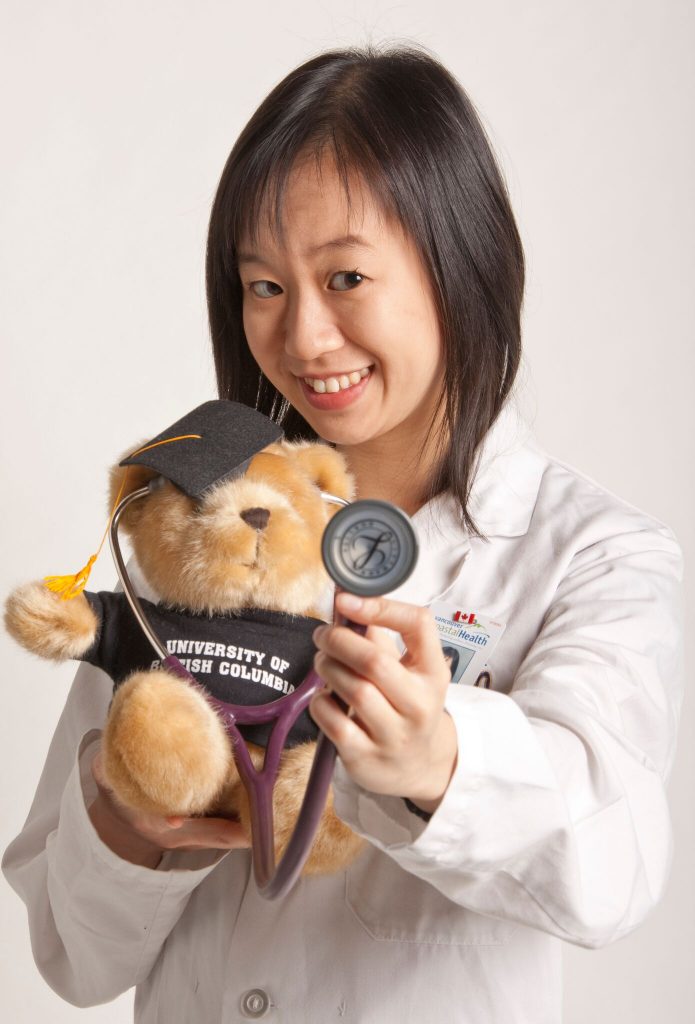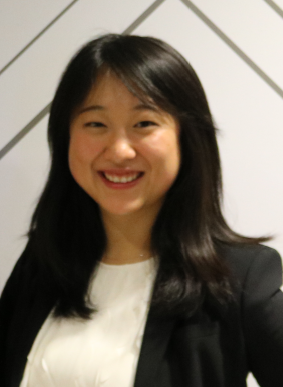Jennifer Tam MD’12
Degree and Grad Year: BSc’07 (Pharmacy), MD’12
Current city: Toronto
Current Profession: Resident, Pediatrics SickKids Hospital
Jennifer is completing her medical residency at SickKids Hospital in Toronto where she focuses her research primarily on infectious diseases in pediatric patients. Jennifer’s team spearheaded a study examining the usefulness of measuring blood levels of HIV medications routinely compared to on an as-needed basis. They found that measuring blood levels on an as-needed basis was more useful in clinical practice. In 2015, Jennifer’s team was recognized for this discovery at the SickKids Pediatrics Research Day.
1. Why did you choose to go into pediatrics and what do you enjoy about it?
Aside from not having to wear a lab coat when working in Pediatrics, I really enjoy the environment of pediatric hospitals. For example, SickKids has a very unique vibe – it doesn’t actually feel like you are in a hospital because it has a very open design and in a way looks more like a mall. The best thing about working with kids though is that I always leave the work smiling.
2. What are some of the most rewarding aspects of pediatrics?
It’s amazing how resilient children are. Despite how sick they might be, so many children can bounce back from just about anything – it is truly inspiring and reminds you to never give up in life.
3. And what about the challenges?
There is a general consensus that one of the most challenging aspects of Pediatrics is working with an entire family rather than just the patient. However, if you mentally put yourself in anxious parents’ shoes and try to understand what they’re going through, you realize that they are just trying to make the best decisions they can for their children. Then, it isn’t a bad thing at all.
4. What are some of your goals in your research and in pediatrics?
My goals primarily are to be a clinician and provide service to patients. In terms of my research in infectious diseases, my goal is to focus on studies that will affect clinical practice in a positive way. This also includes a focus on medical education, as one of the most impactful things in medicine is influencing clinical practice where it starts – during training!
5. Today in healthcare it’s important to….
Remember to take care of your own health too! Physicians can often get caught up in their daily work and forget to take care of their own basic human needs, such as eating, sleeping, and going to the washroom. In order to provide the best care possible to your patients, you have to take care of yourself, too.
6. What do you consider your greatest achievement to date?
Staying alive through the completion of my residency in a new city despite not being able to cook (luckily my husband is more talented in the kitchen)!
7. Was there anything specific about your medical education at UBC that prepared you well for this area of medicine?
I may be biased, but my impression is that UBC medicine graduates have a reputation for being clinically strong. One particularly memorable rotation for me was Pediatric Cardiology at BC Children’s Hospital. With early mornings and late evenings, as well as the expectation of keeping on top of readings, the rotation had rigorous demands. The experience was a real eye opener into the dedication that the career entails. My co-medical student during the rotation also emphasized to me that medicine is a team sport because together, we learned a lot more and got more out of the rotation than we would have alone!
8. Favourite professor?
Pediatric Infectious Diseases physician, Dr. Tobias Kollmann, comes to mind as an influential and inspiring professor. He was able to explain complex concepts and aspects of medicine that we take for granted in clear and concise ways. It made Pediatric Infectious Diseases seem like an incredibly fascinating field (and I can confidently attest that it is, as I am doing my subspecialty training in that now!). Dr. Kollmann is an exemplary clinician and scientist.
9. Favourite memories of UBC Faculty of Medicine?
Of my most meaningful experiences as a medical student was my involvement in the development of the UBC Medical Journal (UBCMJ). As part of the group that started UBCMJ, I learned a ton about how research publications work and developed lifelong friendships during the process.
10. What advice do you have for current UBC MD students about the match process?
It is easy to get stressed out about the process, but remember – most of it is out of your control, so there is no point in stressing out about it because that won’t change anything! (I know, easier said than done, but give it a try.) No matter where you match to, keep an open mind and make the most of whatever you are doing and whatever city you’re in, because that is in your control.
11. What profession might have you pursued if not for medicine?
I completed my pharmacy degree at UBC in 2007 and know that pharmacy is an amazing career. I eventually realized that my passion was in medicine, but loved being a clinical pharmacist as well.
12. Please name a few of your favourite hobbies and interests
Since moving to Toronto to complete my medical residency, I’ve started practicing Taiko drums, which are traditional Japanese drums performed in a group ensemble. I meet with a women’s Taiko drum class twice a week. Way back in the day, Taiko drums were only to be played by men, so our all-female group is a form of female empowerment. Really though, I mainly go because I love hitting giant drums with giant sticks to make resonating rhythms in a group.
13. Bucket list item?
I want to travel to every continent in the world. After travelling to Antarctica and South America this winter, I will only have Australia left to go!
Nazgol Seyednejad BMLSc’07, MD’13
Meet Nazgol Seyednejad BMLSc’07 and MD’13 graduate who is now resident physician specializing in General Surgery:
 A graduate of the Bachelor of Medical Laboratory Science (BMLSc) program in 2007, Nazgol’s general interest in physiology and pathology initially drew her to the program. ‘I was very interested in the program as it focused on the pathology of disease processes, through a comprehension of human biology and physiology.’ The program offered a very hands on approach, with laboratory medicine and research techniques to complement its didactic teachings. For example, ‘your readings and classroom based teachings on electron microscopy were supplemented by a project where we were able to process and prepare tissue samples, and personally use the electron microscope for imaging.’
A graduate of the Bachelor of Medical Laboratory Science (BMLSc) program in 2007, Nazgol’s general interest in physiology and pathology initially drew her to the program. ‘I was very interested in the program as it focused on the pathology of disease processes, through a comprehension of human biology and physiology.’ The program offered a very hands on approach, with laboratory medicine and research techniques to complement its didactic teachings. For example, ‘your readings and classroom based teachings on electron microscopy were supplemented by a project where we were able to process and prepare tissue samples, and personally use the electron microscope for imaging.’
When asked to describe what she does in her workplace, the fourth year General Surgery resident replied that she works in a dedicated multidisciplinary team composed of surgeons, residents, medical students and allied health professionals who are involved in the perioperative and operative management of patients who require surgical care, either in an acute setting or on an elective basis. A general surgeon is trained to work in many different fields of surgery and medicine extending from acute care, surgical oncology, trauma and/or intensive care. As a specialty, general surgery focuses on diseases of the head and neck and the gastrointestinal system.
Naz reflected that she feels very privileged to contribute to the care of her patients through a surgical discipline. She enjoys the fast-paced and time-sensitive nature of general surgery and treating urgent and elective cases through a combination of technical skills, clinical judgment and a comprehensive understanding of anatomy and pathology. She feels the highlight of a general surgery training is the clinical variation it offers: “at any point during your work day you may be helping resuscitate an acutely ill patient and taking them to the operating room immediately, or you may be disclosing a cancer diagnosis and helping make a long term management plan.”
Looking back at her time as an undergraduate student, Nazgol attributes the BMLSc program as an excellent preparatory program for her medical school and current training. ‘The program encompasses a strong network of faculty who are passionate about what they do and the courses they teach. They are dedicated mentors, always available and willing to talk about career paths and offer guidance.’ She feels that many of the faculty she met through the program have impacted her career path and choices.
Of special mention is Dr. David Walker, who offered Naz a research position at St. Paul’s Hospital Institute for Heart and Lung Health after completion of her degree. Dr. Walker’s profound mentorship allowed Nazgol to develop the skills to design, and execute multiple basic science research experiments. She feels that this experience has been the foundational framework of the research projects she has been involved in throughout medical school and residency, and has allowed her to appreciate the bench to bedside translational value in research. The work of her and her team members has culminated into multiple manuscripts and published in medical, surgical and oncology journals, including a publication in the New England Journal of Medicine.
Nazgol has presented her work at various conferences; receiving multiple prizes and awards for her presentations. In fact, Naz contributes her success in her presentations at conferences and teaching sessions to one of the most influential courses in her training, ‘presentations in current topics’. Led by Drs. Godolphin and Bradley in the BMLSc program, this is a course focused on providing students with the skills of effective presentations.
Naz would advise prospective and current BMLSc students that she feels this is one of the best programs at UBC, which prepares and trains students for many different career avenues. She urges students to think outside the box and take advantage of the mentorship they have access to through the program. Lastly, she would advise that the BMLSc program isn’t just for medical school or for the sciences; however it provides students with a strong background to pursue many different opportunities and paths. The program is currently led by Dr. Amanda Bradley, a personal mentor to Nazgol, and someone she holds in very high regard. “Dr. Bradley is very dedicated not only to making this the best program at UBC, but someone who has the vast amount of experience and compassion it takes to lead students to their ultimate goals. You cannot ask for a better program director.”
Reflecting on her favourite memories from the BMLSc program, Naz recalls the connections she made with her classmates. With small class sizes and a hands-on, team based approach to learning, she was able to get to know her peers on a social level, some of whom she still continues to stay close to.
As a resident physician, she has an impressive background of honours and awards, in her research work, community initiatives and her teachings. When she’s not at the hospital or on rotation, she enjoys spending time with friends and family. A self-proclaimed foodie, an item on her bucket list is to go to culinary school and open a farm to table restaurant when she retires. She enjoys staying active through snowboarding, running and traveling.
Xinya Wang BMLSc’15
Interested in seeing what you can do with a Bachelor of Medical Laboratory Science degree? Meet Xinya, who is now a first year law student at University of Ottawa:
Name: Xinya Wang
Degree and Grad Year: BMLSc’15
Current City: Ottawa
Current Job Title: Law Student (Common Law, English); University of Ottawa, Ottawa ON
1. Today in healthcare it’s important to…
Be empathetic! It’s so important (in healthcare and law) not to disregard or trivialize our individual experiences. Just because the scope of our understanding is limited, doesn’t preclude us from relating or showing compassion to someone else.
2. What initially made you interested in the BMLSc program?
I love understanding the underlying mechanism(s) of different diseases. Through a microscope, it’s an entirely different landscape; there’s something special about being able to interpret something of value from all that chaos.
3. What do you consider your greatest achievement to date?
Small beans, but I’m proud of myself for picking up and moving to Ottawa! I miss Vancouver, but I’m happy for this change of pace.
4. Name the last book you couldn’t put down.
“Let’s Explore Diabetes with Owls” by David Sedaris.
5. Who was your favourite UBC Faculty of Medicine professor?
Dr. Amanda Bradley was one of the most kind, empathetic, and supportive professors that I’ve ever had. I am so grateful to have been one of her students.
6. What advice would you give to current BMLSc students?
I would advise students to take advantage of the exceptional academic and experiential opportunities that this program offers.
7. What is the best professional advice you’ve received?
Not “professional” advice, per se, but I once read a blog that suggested picturing your life as the Grand Canyon, and dropping your worries into it. Whatever it is, will be barely visible. “Suddenly your problem will seem much, much smaller in comparison to the grand course of your huge, rich, long life”
8. What is your favourite UBC memory?
In fourth year, I joined the planning committee of the UBC Student Leadership Conference. The experience was transformative, in many ways, but I’m most thankful for the friendships. It was an amazing experience to work with so many brilliant, accomplished, and diversely talented individuals.
9. Biggest risk you’ve taken to date?
To take the LSAT – sending me down the rabbit hole to wherever I’ll end up, which is still to be determined.
10. What profession might you have pursued, if not for medical laboratory science?
A liberal arts degree; most likely in Classical/Religious studies.
11. Please name a few of your favourite hobbies and activities
Being in Ottawa, I miss going for runs in Minoru Park (Richmond, BC). I also love making handmade gifts for my friends, and writing extensively verbose birthday and/or holiday cards.
12. What are the best aspects of your career?
By being in the capital city, University of Ottawa offers a lot of unique opportunities. Through Public & Constitutional Law class, I was able to attend the town hall for Justice Malcolm Rowe – and the Supreme Court is only a short bus-ride away!
13. What are the most challenging aspects of your career?
So far, it has been challenging to acclimate to a different learning style. I’m not used to doing so many readings!
14. Bucket List Item?
Adopt a dog!
15. What is one question you’re often asked about your career?
I often get asked the following question: “Law school… That’s quite different from Science, isn’t it?”
Subsequently, I often get asked what I want to specialize in, to which I’m still undecided.
While completing the BMLSc program, Xinya held positions in research at the Vancouver Prostate Centre and the UBC Biodiversity Research Centre. She also held several volunteer positions including Vice President, Communications at UBC Women in Science Club, Board Member, Richmond Women’s Resource Centre and volunteered at the UBC Student Leadership Conference in 2015.




